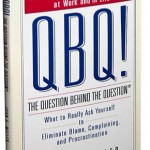My brother wrote a long, well thought response to the post I made the other day about college. There were some good points, so I figured I’d re-post his entire comment as a separate post. It was worth it. The only thing that I would now add is, how much are you paying in tuition? Maybe loans are a bad measure. The layer between no college and college is lower cost college. Is it worth it to go to a prestigious university for the extra $10-$20k per year? I think you can get the same education and experience at a state school (with exception of certain specialized fields). In any case, think hard about the cost. It will follow you.
And here’s Eric’s thoughts:
I’ve thought about this for a few weeks now and I could probably write a book about whether or not college is worth it because it’s such a complex subject, but I’ll keep it simple and related to personal experience.
I have a Bachelor’s of Science in Mathematics, but I sell beer, wine, and liquor for a distributor for a living. I didn’t even finish my degree until I already had this job. So it’s safe to say that I never used my degree to get a job in a related field. Fortunately, that’s not how I have valued my college experience.
The first, most obvious way that I am happy I went to college is probably the same for most people: the social experience. The friends I made in college are the same friends I hang out with today. Never in my life will I experience living in the same way that I did in college. I was within 100 yards of nearly every friend I had. At any time, if I was bored, I could walk down the hall and see what other people were doing. We didn’t have to call and make plans in advance like we do now. We ate together, studied together, played together, lived together. We formed bonds in a way that I don’t think I ever will form with anyone again. Since then, we’ve been in each other’s weddings, gone on road trips, shared in the celebrating the births of each other’s children, etc. I don’t know if I would have the same depth of friendships if I didn’t share the “college life.”
But the hidden, more important reason college was important to me was that it taught me to learn independently. Let me explain what I mean by that.
When you go to college and you major in history, you aren’t going to learn everything that has ever happened in history ever. You probably won’t even learn everything that happened in World War II. What you will learn is an overview of history, and you will go in depth on a few specific topics. But most importantly, you will learn HOW to study history. You will learn how to read a scholarly journal. You will learn what aspects of a war or government are important and what is superfluous. When you graduate, you won’t be ready to work in a museum or as a history teacher because you know everything about history; you will be ready because you know how to apply a style of thinking and learning that is specific to the field that you are going into.
That’s the way I view math. When I was taking teaching classes, everyone knew that eventually a student was going to ask you, “Why do I need to learn algebra? Am I ever going to use this?” The honest answer is obviously, “No, you will probably never encounter a time in your adult life that you will need to know the Pythagorean Theorem without looking it up.” But the more important issue was that you were learning skills that you can apply in your life. I learned how to analyze a problem. I learned critical thinking skills. I learned how to add quickly in my head, and therefore process information quickly without having to write it out. I learned how to think through logical steps to solve a problem. These are all valuable in my life, not just a career.
Do I ever encounter a Calculus 4 problem when I’m trying to get a liquor store to buy more 30 packs of Miller Lite? No. But when I read a newspaper article, I know how to find the facts and ignore the fluff. I know how to calculate how much I’m saving on my mortgage by paying more than the minimum payment. I can rationally think through a problem step by step instead of being overwhelmed by the size of the challenge. These are the things that college taught me, and these are the things that make my life more enjoyable, more manageable, and more complete. Those are things, to me, that you can’t measure in student loans.






For the record, I had a 4 year scholarship (room and tuition) so all I paid for my first four years was books and expenses. But it took me 6 years to graduate, so I paid out of pocket while I commuted for 2 years (no loans).
I think that’s a huge part of the equation too.